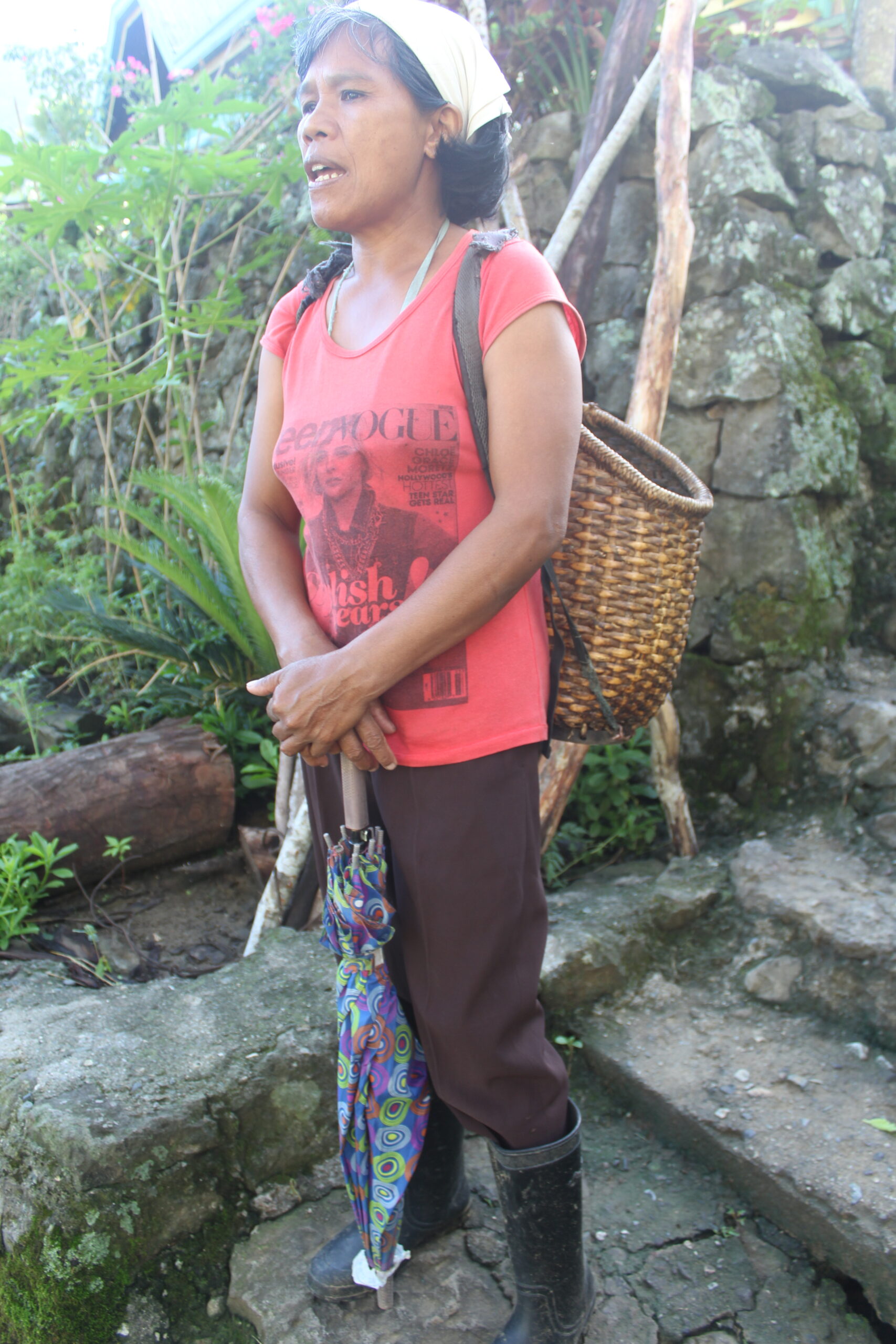Kalinga, Philippines – When Typhoon Ompong (known internationally as Mangkhut) battered the remote and mountainous Cordillera Region last September 2018, it ruined homes, severely destroyed agricultural lands and livelihoods, and claimed even lives. Among those affected were the communities in Barangay Balantoy in the municipality of Balbalan in the province of Kalinga.
Delia was sleeping soundly in her home when she was suddenly awakened by strong winds, accompanied by a cacophony of noise of heavy rains slashing against their roof. By the time Delia saw the morning light, the old, impoverished woman had nothing left to reap in her farmland.
“The damage caused by the typhoon was severe. Our crops were destroyed entirely. After the storm, we did not know where to get food to eat,” said Delia, a farmer, survivor of the typhoon, and mother of three.
Experiencing the challenges of scarcity, remoteness, poor connectivity, vulnerability to disasters, and a history of slow aid response, worse, lack of service delivery during disasters have been part of Delia’s life as long as she can remember. Even without typhoons, no matter how hard Delia works hard in the field, she, along with her fellow community members, is still mired in poverty and hunger. Typhoon Ompong has only made it worse for small-scale farmers like Delia, who depend on their harvest, to survive. The effects of the previous typhoons have taken a terrible toll on families like Delia’s, as food became scarce following the destruction of their livelihood.
“We survived on the relief goods given by the municipality and other organizations that were able to reach out quickly. After that, we no longer know what to do,” Delia says.
Barangay Balantoy rests in a far-flung, mountainous terrain three to four hours away by transportation and one hour away by hiking from the province’s central business district. Traveling to the business district is discouraging because of the high costs of travel, food, and lodging. Thus, people in the community plant their crops for their consumption. Small enterprises such as stores have started to pop up but only for sitios by the roadside. Far away sitios are miserably underdeveloped, with one sitio having no electricity, making studying hard for the children.
The damages wrought by the typhoon doubled Delia’s burden since she still has to buy seeds for the next planting cycle, or she will have nothing to reap in the next harvesting season. This situation will make it difficult for Delia to get back on her feet.
With a grant from Diakonie Katastrophenhilfe (DKH), Citizens’ Disaster Response Center Foundation Inc. (CDRC), and its network Cordillera Disaster Response and Development Services, Inc. (CorDisRDS) went to Delia’s community to spread the good news.
Citizens’ Disaster Response Network (CDRN) member CorDisRDS, in partnership with DKH and CDRC, responded immediately and assisted the residents severely affected by the storm. With the help provided by DKH, they delivered assorted vegetable seeds and fertilizers to the affected residents of Barangay Balantoy. These farm inputs enabled many community members to re-plant their crops weeks after losing much of their livelihood to the typhoon. Some beneficiaries were even able to share their seeds with their relatives. After two to three months, the vegetables yielded enough food for the families that lasted for a couple of months. Some families even had spare harvests to sell, enabling them to buy hygiene necessities. The vegetable production also proved valuable as it became the primary food source during the government lockdowns imposed to contain the spread of the dreaded COVID-19.
Likewise, part of the program were two training activities wherein the Disaster Management and Sustainable Agriculture training was included. The training taught participants from the municipality of Balbalan the basic safety practices during disasters, using the Community-Based Disaster Management (CBDM) Modules as the basis of the training. It integrated group discussions and knowledge sharing by the Disaster Preparedness Committee (DPC) members. Aside from that, CorDisRDS provided guidance to the DPC members to further equip them with knowledge and skills to increase resiliency during disasters.
Likewise, Delia received an orientation on Sustainable Agriculture, which provided information on how farmers can make their pesticides/herbicides. With this knowledge, farmers in the community will no longer rely solely on commercial fertilizers. It is also a step towards promoting organic farming in the community.

